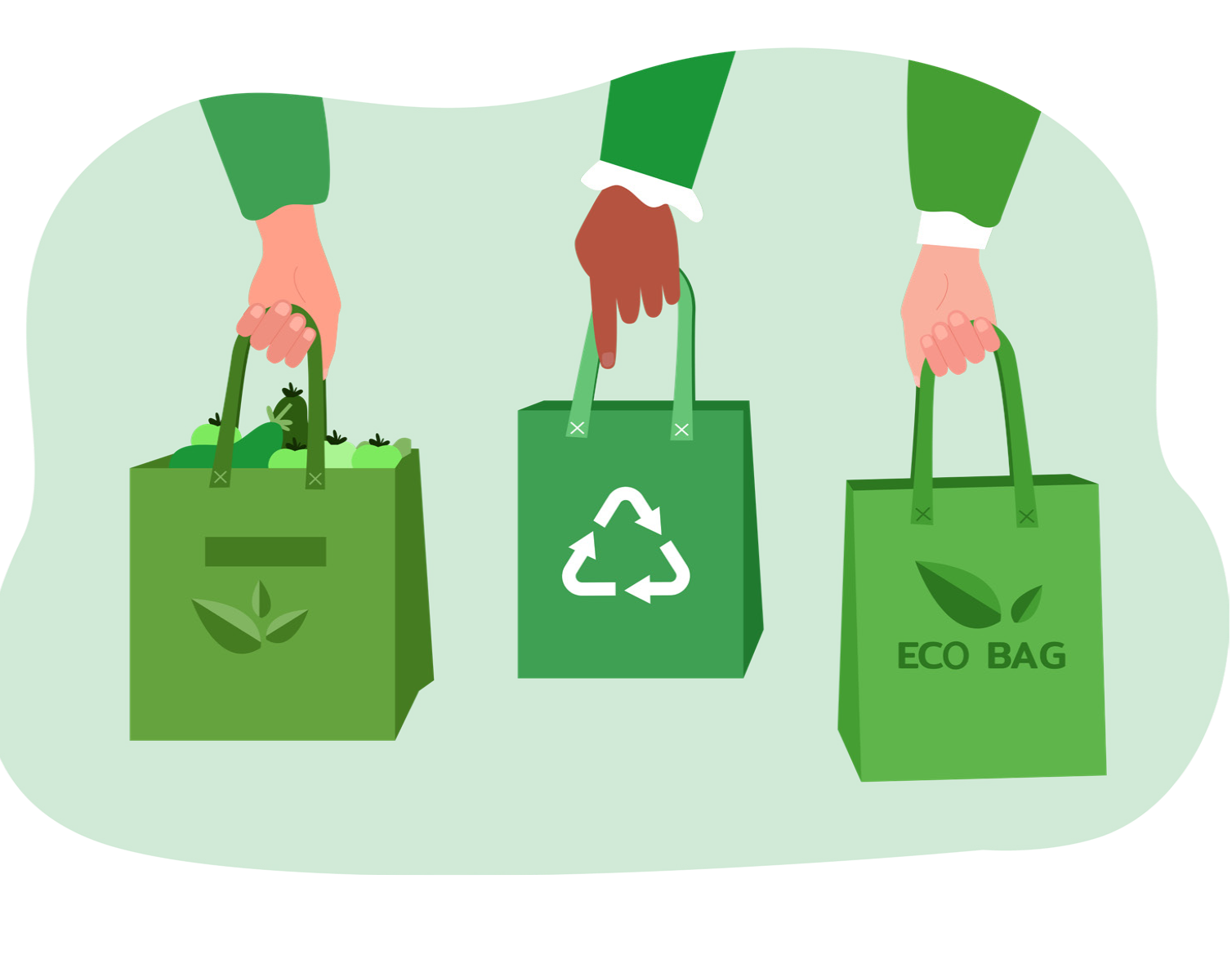Marketing to the Green Consumer
Today’s consumers are generally better informed and more discerning about the products they buy, and they inherently are more aware of their environmental impact. There has never been a better time to launch a sustainable, environmentally friendly product. Today’s customers are empowered with greater transparency and a broader range of choices. Such empowerment offers the possibility to deliberately purchase greener products, which is a growing trend.
European consumers are leaders of this green adoption, with three quarters of EU citizens preferring sustainable products(1). However, there is a contradiction in that whilst many consumers express an interest in greener products, their final purchase decisions often remain based on other factors, such as pricing.

While pricing is naturally a primary factor in deciding a customer’s choice, it is not the only consideration; savvy marketers can find ways to close the gap between intent and execution. Therefore, marketing plays a key role in convincing consumers to buy more sustainable products. These consumers are called Green Consumers.
What is the Green Consumer?
The Green Consumer is a consumer who consciously makes a point to prioritise the purchase of sustainable and environmentally conscious goods. These could, for example, be items which save energy or have been manufactured with recycled materials.
This type of consumer behaviour is seen across all demographics, from millennials and Gen Z who have set the trend for more eco-conscious habits, to older generations who are gradually following suit in order to meet the growing environmental expectations. Furthermore, a substantial minority of people now exclusively buys sustainable products, with most making conscious decisions to purchase these types of items as a matter of preference.

What does the Green Consumer want?
Among EU consumers, over half of all adults actively seeks for more environmentally friendly products(2). For them, environmental impact is a major driver for purchasing decisions. At the same time, there remains a widespread lack of trust in producers’ claims concerning their environmental and sustainability performance. For B2B buyers, who are increasingly concerned about meeting their environmental, social governance (ESG) goals, the need for transparency and accountability is even greater.
Anxiety around climate change and sustainability is growing steadily. Consumers are growing ever warier about which producers they buy from. As such, the green consumer is deeply suspicious of the sort of hyperbolic claims that are widely used in so-called greenwashing campaigns.
For marketers, this means the disruptive advertising of old is no longer effective. Instead, they need to focus on trust, transparency, and authority. For marketers, that means publishing advertising collaterals in which environmental and sustainability claims are backed up by hard evidence and demonstrable industry expertise. In an era of widespread ‘doom-mongering’, it is especially encouraging when brands can tell positive stories about what they are doing to help the environment – provided, of course, those stories are true and authentic. To that end, marketing to the green consumer also involves actions like seeking official certifications for sustainability, clearly communicating a product’s environmental benefits, and adopting more eco-friendly marketing strategies themselves.
What does this mean for manufacturers?
The manufacturing sector accounts for the largest share of annual energy and raw material consumption, which makes the sustainability challenge orders of magnitude greater than for other industries. This applies in both traditional retail and direct-to-consumer retail, but particularly in the former, due to the greater complexity of supply chains.
By now, most manufacturers have stringent ESG policies in place and actively seek broadly recognised certifications, if they have not done so already. Ecolabels, of which there are hundreds around the world, play an important role in marketing communications, as they are provided by third parties after unbiased assessments. For example, the Rainforest Alliance logo and seal are widely recognised for validating a product or brand’s agricultural sustainability, while the EU organic products label can be used for food products that contain at least 95% organic agricultural ingredients.
No matter where an organisation is in the supply chain, appealing to the green consumer has never been more important. Manufacturers selling directly to consumers can leverage social influence to promote products that involve sustainable manufacturing processes. The same applies, perhaps to an even greater extent, to manufacturers that sell to distributors and retailers. The only differences are the channels and communications used. Most retailers and distributors do want to sell green products, simply because they deliver greater returns.
Provided the products they are marketing are actually sustainable, manufacturing marketers should formulate transparent marketing strategies. Above all, they should avoid greenwashing tactics, such as using spurious and unregulated terms like ‘green’, ‘natural’, or ‘chemical-free’, and instead focus on clear, fact-driven marketing. This strengthens the willingness for consumers to buy such products and thus increases sales.
What are the benefits of marketing to the Green Consumer?
Marketing to the Green Consumer is a forward-thinking strategy, not least because consumers are becoming more and more environmentally aware. Driven by rising awareness and a fast-evolving regulatory environment, consumers are increasingly likely to search for sustainable goods. For example, the last five years have seen a 71% rise in search queries for sustainable products(3).
With green marketing, manufacturers, retailers, and distributors can appeal to a burgeoning new audience segment, improve their credibility, and greatly increase their chances of long-term success. Furthermore, green marketing is part of a greater goal in that it helps encourage more sustainable practices among businesses and consumers alike. The most important thing to remember, however, is that companies ‘walk the walk’ and avoid engaging in greenwashing.
Sources
1. https://ec.europa.eu/environment/eussd/smgp/facts_and_figures_en.htm
2. https://www.forrester.com/blogs/european-consumers-drive-the-sustainability-demand/
3. https://www.worldwildlife.org/press-releases/search-for-sustainable-goods-grows-by-71-as-eco-wakening-grips-the-globe